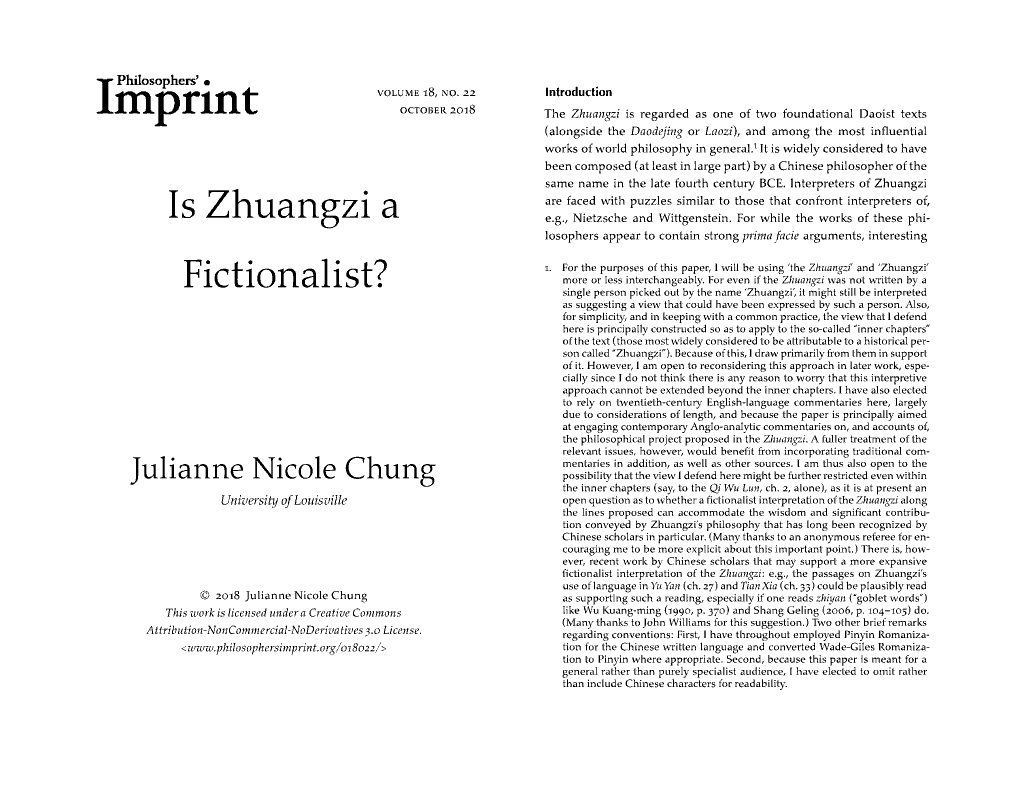Is Zhuangzi a Fictionalist?
Skip other details (including permanent urls, DOI, citation information): This work is licensed under a Creative Commons Attribution-NonCommercial-NoDerivatives 4.0 International License. Please contact [email protected] to use this work in a way not covered by the license.
For more information, read Michigan Publishing's access and usage policy.
Abstract
This paper explores the possibility that Zhuangzi (a pre-Qin Chinese philosopher) can be fruitfully interpreted as a fictionalist. It proceeds in four parts. Part one discusses two distinct and very general types of fictionalism—force and content—that might prove useful for an interpreter of the Zhuangzi. The former type of view would have it that the expressions in question—that is, the expressions that Zhuangzi is held to advocate using and interpreting non-literally—are not best seen as used in a way that aims at, e.g., truth, whereas the latter type of view would have it that the expressions in question are best seen as used in a way that aims at truth, if in a non-literal fashion. Part two surveys evidence in favor of the claim that Zhuangzi can be interpreted in terms of one or the other of these two types of fictionalism and argues that he is better characterized as endorsing a version of the former. Part three explains how interpreting Zhuangzi as a fictionalist can help to resolve notable tensions in the text and briefly explores a few additional merits of this reading of the Zhuangzi: namely, that it can give us a clearer idea of what Zhuangzi’s positive project is, unify seemingly disparate scholarly interpretations of it, and reconcile objectivist and non-objectivist strands in his work. Finally, part four concludes by gesturing toward how the interpretation proposed here might bring the Zhuangzi into productive dialogue with two longstanding philosophical questions: specifically, the question of how we should respond to skeptical (and similar) arguments, and the question of how aesthetic features of works of art—and in particular, literature—might be related to their cognitive or epistemic value (insofar as they have cognitive or epistemic value of an interesting sort).



